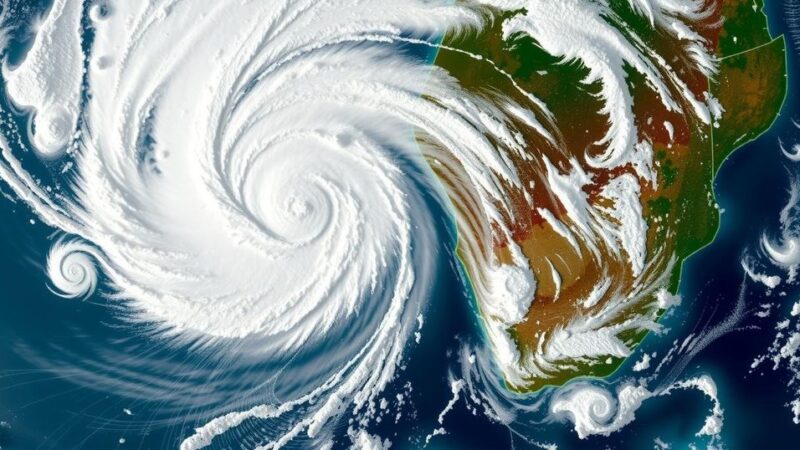High-stakes UN climate negotiations in Baku face escalating tensions as developing nations reject inadequate financial proposals. A rough draft of USD 250 billion annually falls short of the USD 1.3 trillion needed by poorer countries to combat climate change. Walkouts by key groups reflect growing frustration, as deadlines loom and negotiations approach a critical juncture.
Negotiators from affluent and developing nations are engaged in high-pressure discussions in Baku, Azerbaijan, as they strive to finalize a significant financial agreement aimed at combating climate change. The talks, which have extended beyond their scheduled conclusion, have been marked by rising tensions, particularly among developing countries rejecting a rough draft proposal perceived as inadequate. Discontent with a commitment of USD 250 billion annually by 2035, which falls short of the necessary funding, the Least Developed Countries (LDC) and the Alliance of Small Island States (AOSIS) have expressed frustration, urging for more substantial support. As deadlines approach, many delegates from poorer nations are departing, contributing to a sense of urgency and desperation. Developing nations are demanding an estimated USD 1.3 trillion to effectively adapt to the adverse impacts of climate change and transition to sustainable energy sources, yet proposals remain significantly lower. Moreover, accusations of maneuvering by wealthier nations highlight the ongoing tensions, with fears that any insufficient agreements may jeopardize the progress necessary to address climate challenges. The ultimate resolution of these negotiations carries significant implications for global climate finance and commitments.
The ongoing United Nations climate talks in Baku illustrate the critical and often contentious negotiations surrounding climate funding, particularly for vulnerable nations. Since the Paris Agreement of 2015, wealthier countries have been obligated to financially assist developing countries in their efforts to combat climate change. This support is essential as developing nations face increasing threats from climate change-related phenomena, necessitating—according to experts—an investment of approximately USD 1 trillion annually to adapt and mitigate these impacts. The tensions during the Baku talks reflect the broader struggle for equitable climate finance amid competing national interests.
In conclusion, the UN climate negotiations in Baku underscore the urgent need for a robust financial package to support developing countries in their climate efforts. While the initial proposals have faced substantial criticism and led to walkouts from key delegations, the divergence between the financial needs of vulnerable nations and the commitments from wealthier counterparts remains a pressing issue. The outcome of these discussions could have profound implications for the future of global climate finance and the ability of nations to adapt to the rapidly changing climate.
Original Source: www.theweek.in







